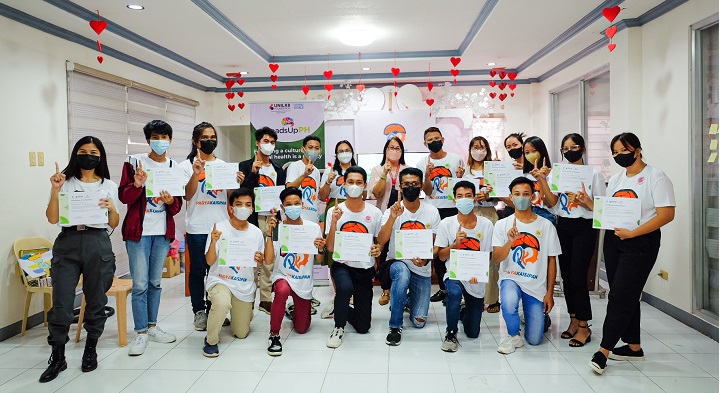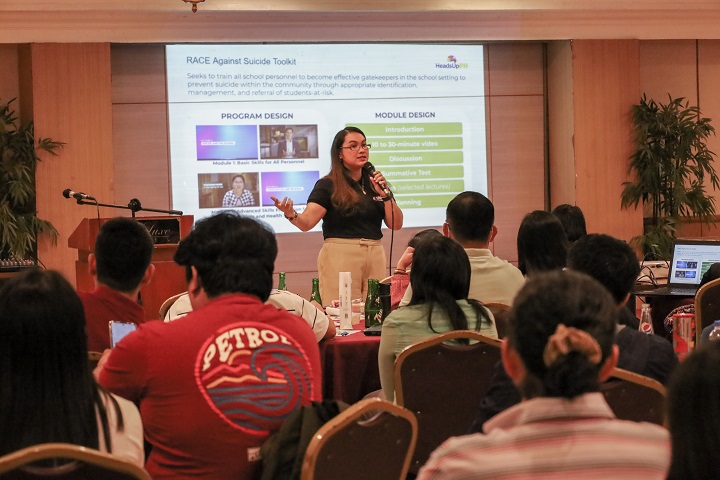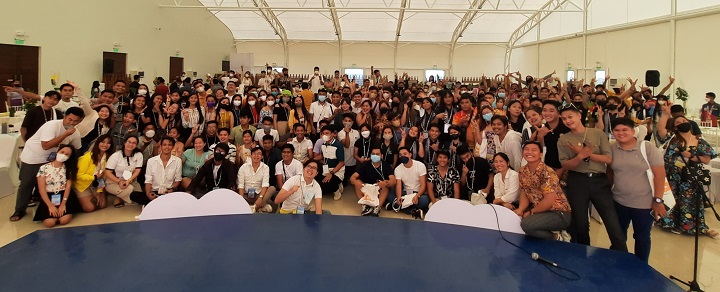
People have only recently started to realize that mental well-being is just as important as physical health, especially when it comes to the young. One of the most alarming recent statistics reports high prevalence of mental health problems among Filipino children, with 10% to 15% of children aged 5 to 15 affected. Additionally, the World Health Organization (WHO) reports that 16.8% of Filipino students aged 13 to 17 have attempted suicide within a year before the 2015 Global School-based Student Health survey.
This dire situation highlights the urgent need for targeted interventions. With these challenges in mind, Unilab, through Heads Up PH, has taken great strides to do its part in uplifting the mental health of Juan dela Cruzes who need it. Heads Up PH is the mental health and well-being umbrella program of Unilab Foundation and plays a pivotal role in addressing the prevalence of suicide and mental health disorders among Filipino youth.
Recognizing the need for action, Heads Up PH has been working tirelessly to provide a holistic approach in building a culture where mental health and well-being are accessible to every Filipino.
“These issues have long existed and we are fortunate to have access to information in this day and age. It is Heads Up PH’s goal to communicate scientific and evidence-based information to the community, especially the youth who may either be at risk or can be a force multiplier in spreading awareness through their family, peers, and communities,” said Lilibeth Aristorenas, Executive Director of Unilab Foundation.
Addressing mental health as a community
The program enables community-based discussions that promote information about different mental health issues and how to address them. More than just employing the expertise of psychiatrists and health professionals, the approach also greatly involves members of the community, as they are crucial in supporting persons undergoing mental health struggles. Comprehensive training, symposiums, and targeted activities are provided to different age groups and members of the community.
Heads Up PH’s sub-programs have connected goals, made possible by partnerships that push for the same advocacy of breaking the stigma about mental health, and making tangible actions to help persons who are fighting these battles. The sub-programs basically target different age groups of the youth, from elementary to secondary, and even tertiary students.
Guided by the Mental Health and Psychosocial Support framework, Heads Up PH covers universal and personal preventive interventions, including small group discussions that aid families and communities, as well as focused care and specialized care efforts such as tele-counseling and peer-to-peer engagements.
#MindYourHealth is a program that empowers local government units to address mental health needs of communities through youth engagement.
Teaching caregivers about suicide prevention
One other program is Race Against Suicide which is co-developed by Unilab Foundation and a council of mental health experts. It introduces an evidence-based mental health intervention toolkit that aims to offer a more comprehensive approach to suicide prevention and mental health wellness in schools. The training program equips teachers and parents with the knowledge and skills to efficiently identify and refer individuals at risk of suicide, covering risk assessment to referral.
Crucially, the toolkit has undergone peer review by leading mental health professional associations, including the Philippine Association of Psychologists, the Philippine Psychiatrists Association, the Philippine Guidance and Counseling Association, the Philippine Society for Child and Adolescent Psychiatry, and the Philippine Pediatric Society, reflecting a collaborative effort to address this pressing issue.
The training is facilitated by experts such as Dr. Sheila Marie Hocson, a registered Guidance Counselor and Psychologist, and Dr. Kenneth Ross Javate, a medical doctor specializing in Child, Adolescent, & Adult Psychiatry. At the end of the training, participants are empowered to integrate the RACE Toolkit into their schools and practice, with some aiming to adapt it for community-based use further.

Coming together for lasting change
These efforts are continuously being carried out and monitored in different schools and communities, as the Unilab Foundation believes that interventions are a process that involves patience and constant improvement to save individuals and communities alike. The Unilab Foundation hopes to break the stigma of openly talking about mental health. If people are able to talk about it more, then they are also able to have a healthy exchange of information that will lend to coming up with a long-term resolution.
Through all the Heads Up PH programs, more than 950 teachers and 80 guidance counselors have taken part in the training. Cumulatively across all sub-programs, around 22,000 students through their schools have participated in mental health and well-being activities online and offline. Heads Up PH has also made available a free toolkit that specifically targets the youth and focuses on developing their ten (10) essential well-being areas to help foster and maintain healthy coping mechanisms through evidence-based and practical activities that could build their resilience in the time of crisis.
Heads Up PH has made leaps in bringing the importance of mental health to the forefront of Filipino society but only by working together. Their efforts highlight the significance of cooperation between the private sector, mental health professionals, educational institutions, local government units, and the communities themselves in addressing mental health risks in the youth. With these initiatives, there is hope for a brighter and mentally healthier future for Filipino youth and the nation as a whole.

Do you want to partner with Heads Up PH or be part of a growing number of volunteers?
Heads Up PH is continuously reaching out to Filipinos and institutions to create a ripple effect that effectively addresses the issues on mental health from the grassroots level.

